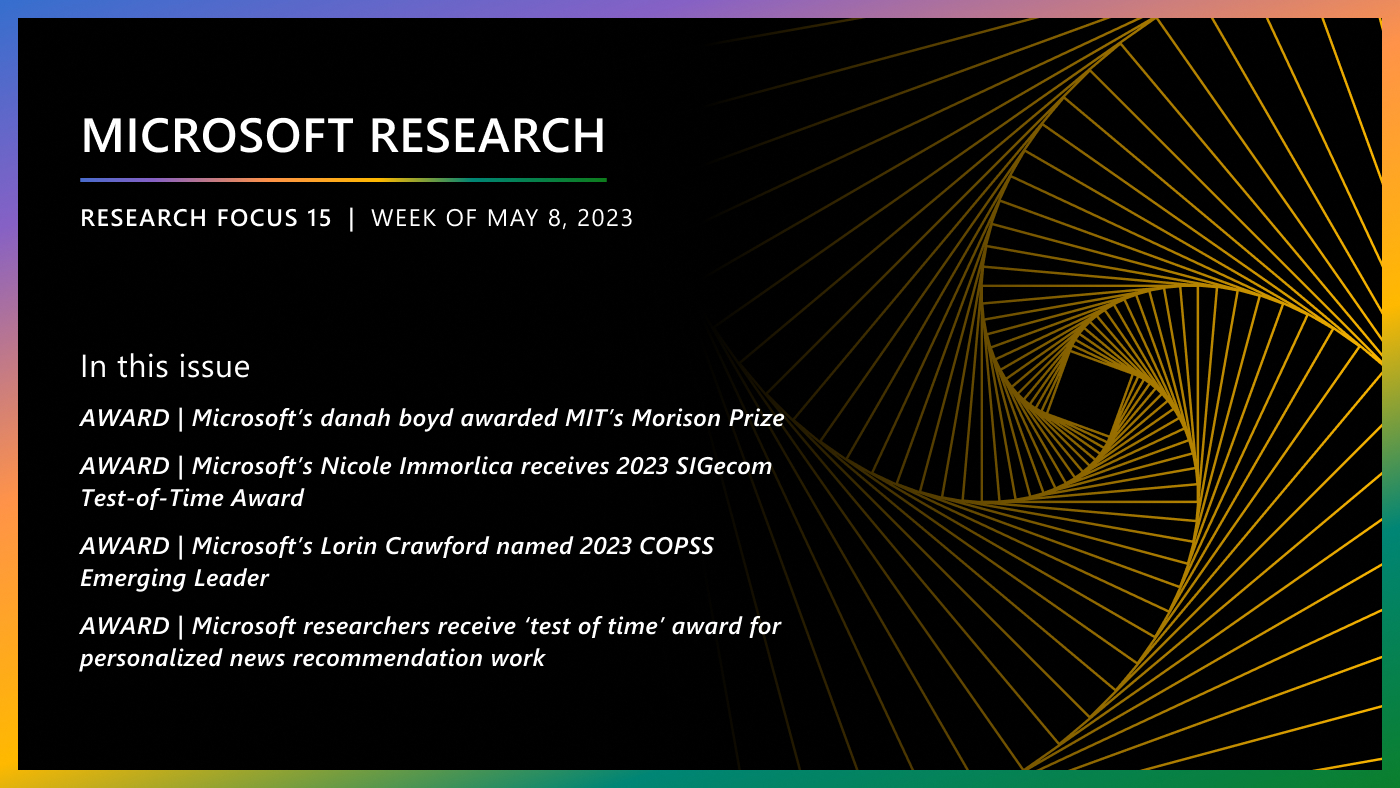By Harold Javid, General Chair, Faculty Summit

Jeannette M. Wing on stage at Microsoft Research Faculty Summit 2016. (Photography by Scott Eklund/Red Box Pictures)
Microsoft Research’s annual Faculty Summit opened Wednesday with a series of talks about how technological innovation can benefit both business and society.
Spotlight: Blog post
In a fireside chat with Jeannette M. Wing, Microsoft’s corporate vice president in charge of the company’s basic research labs, Microsoft CEO Satya Nadella underscored the key role Microsoft Research (MSR) plays in continuing to deliver breakthroughs capable of making big impacts across multiple industries.
Nadella’s “Microsoft Vision” fireside chat with Wing was an apt beginning to the 17th annual Faculty Summit, which is being attended by 600 leading academics and researchers.
Over the two-day summit, researchers will discuss ways to collaborate on the most pressing and important research questions in computer science and beyond. At a “hot topics” session Wednesday, for example, Microsoft researchers presented the latest advances in speech recognition, cryptography, molecular programming and Internet security.
Daron Green, the managing director for Microsoft Research’s Outreach program, opened the summit with a call for researchers to utilize the newest machine learning and artificial intelligence tools, all publicly and freely available to academia:
- Microsoft Cognitive Services Academic Knowledge API accesses the Academic Graph (data) which now consists of 150 million publications dating back to 1870 and is growing at a rate of 1 million publications per month. What’s more, researchers can experience the breadth and depth of the Academic Knowledge API and Academic Graph by using Microsoft Academic, an online destination where anyone can discover a rich set of related papers, conferences, people and other information in their area of expertise.
- Open Academic Society: Newly formed with the ambition of growing the Academic Graph, members provide workshops, challenges, and data sharing activities and anyone can benefit by participating and/or contributing to the mammoth dataset of 44 million unique authors and 1 billion citations.
- Project Malmo: The open source initiative sends AI-fueled agents into the world-building game Minecraft with the goal of developing more sophisticated intelligence that can complete human-like tasks.
I hope that the summit inspires all of us to think about how we can shape the future of computer science and technology to make positive changes for society.
Learn more





